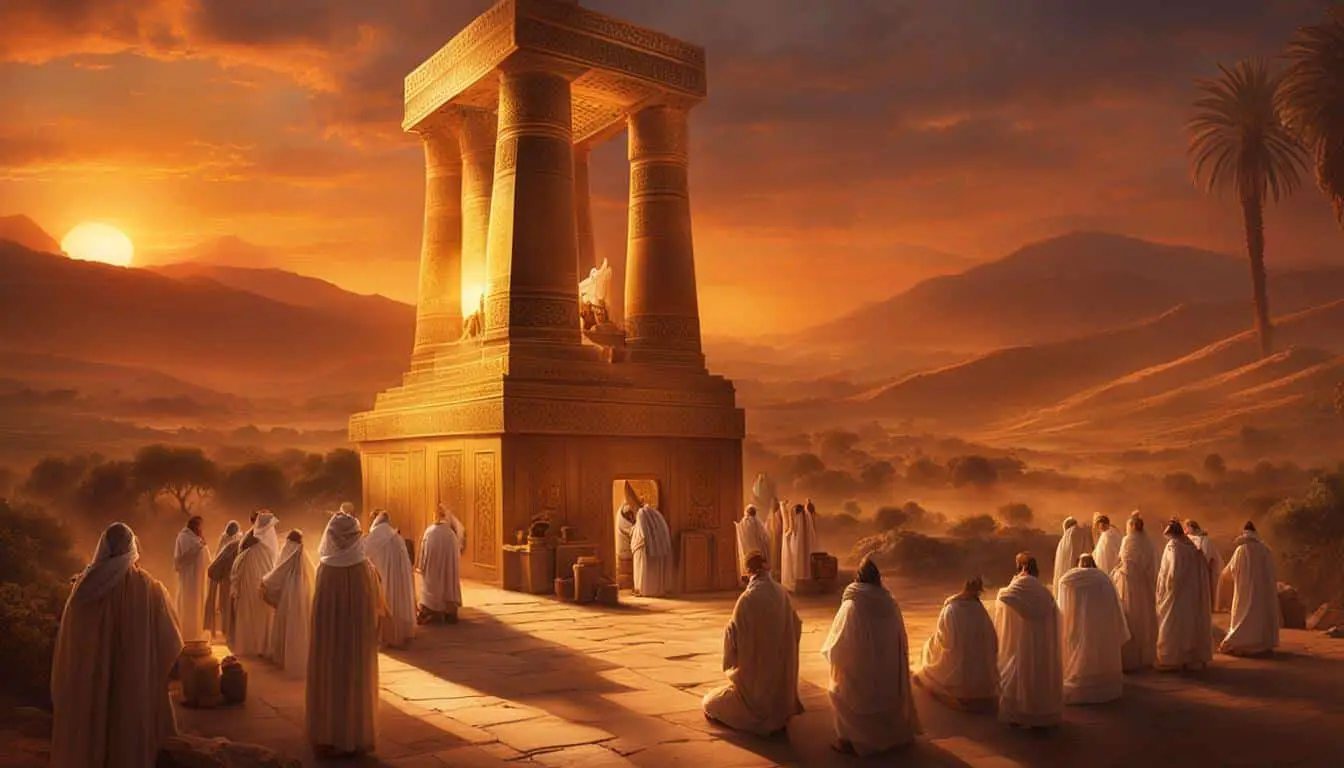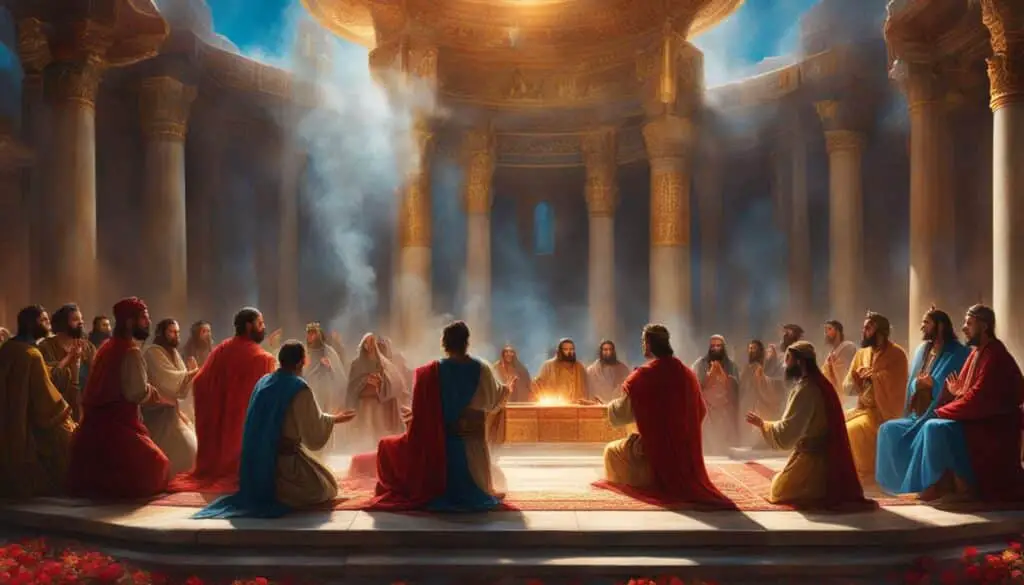
Religious Practices in Old Testament Times: A Deep Dive
In ancient times, the religious practices of the Old Testament played a crucial role in the lives of the Israelites. These practices were deeply rooted in ancient Hebrew rituals, religious ceremonies, and worship in biblical times. Understanding these traditions and customs gives us insight into the religious beliefs and values of the people of that era.
One of the significant aspects of religious practices in the Old Testament was the presence of the Holy Spirit. Throughout the scriptures, we see instances where individuals like Joshua, Gideon, and David were anointed and empowered by the Holy Spirit for leadership and prophetic purposes. The Spirit of God was believed to guide and protect the people, ensuring their connection to the divine.
Key Takeaways:
- The religious practices in Old Testament times were deeply rooted in ancient Hebrew rituals and worship.
- The Holy Spirit played a significant role in the lives of the people, empowering them for leadership and prophetic purposes.
- Understanding these ancient traditions gives us insight into the religious beliefs and customs of the Israelites.
Ancient Hebrew Rituals and Worship Practices
In the Old Testament, worship was an integral part of Israelite life. It involved various rituals and practices aimed at honoring God and seeking His favor. These ancient Hebrew rituals provided a framework for the Israelites to express their devotion and connect with the divine.
One of the central practices in ancient Hebrew worship was offering sacrifices. These sacrificial rituals played a crucial role in the Israelites’ interaction with God. The act of sacrificing animals symbolized the surrender of one’s possessions and desires to God. It was a way for the Israelites to demonstrate their faith and seek atonement for their sins.
Additionally, the observance of feasts and festivals was an essential part of worship in biblical times. These gatherings brought the Israelite community together to celebrate and commemorate important events in their history. The Passover feast, for example, honored their liberation from slavery in Egypt, while the Feast of Tabernacles celebrated God’s provision during their wandering in the wilderness.
“Worship is not about fulfilling a religious obligation, but rather about experiencing a deep and intimate connection with God.”
Ancient Israelite customs also included performing ceremonial acts such as cleansing rituals and the anointing of individuals with oil. These acts symbolized purity and consecration, preparing individuals for their roles as priests, prophets, and leaders in the community.
As we explore the ancient Hebrew rituals and worship practices, it is important to recognize their significance in the context of the Old Testament. They were more than mere religious traditions; they were a means for the Israelites to express their faith and devotion, seeking to honor and connect with their God.

| Rituals | Purpose |
|---|---|
| Sacrifices | Symbolic act of surrendering to God and seeking atonement |
| Feasts and Festivals | Celebration and commemoration of significant events in Israelite history |
| Cleansing rituals | Purification and preparation for worship |
| Anointing with oil | Consecration and empowerment for leadership roles |
Religious Beliefs and Customs in the Old Testament
In exploring the Old Testament, we encounter a rich tapestry of religious beliefs and customs that shaped the Israelite community. At the heart of their faith was the unwavering belief in the one true God, YHWH. The Israelites worshipped Him exclusively, acknowledging His sovereignty and seeking His guidance in every aspect of their lives.
Central to their religious practices were the commandments and laws given by God. These sacred instructions served as a moral compass, guiding the Israelites towards righteous living and fostering a sense of community. They strived to adhere to these principles, recognizing that obedience to God’s commands brought blessings and favor.
Throughout the Old Testament, we also witness a plethora of rituals and customs that were deeply intertwined with their religious devotion. From the offering of sacrifices to the observance of feasts and festivals, these practices were all designed to honor God and express gratitude for His providence. Each ritual carried profound symbolism, reminding the Israelites of their covenant relationship with God and their dependence on His grace.
Ancient Hebrew religious practices were not mere acts of routine; they were expressions of profound faith and dedication to God. Through these rituals and customs, the Israelites sought to cultivate a deep spiritual connection with their Creator, drawing closer to Him and aligning their lives with His divine purposes.
FAQ
What role did the Holy Spirit play in the Old Testament?
In the Old Testament, the Holy Spirit played a significant role in the lives of the people. The Spirit of God is mentioned as early as Genesis 1:2, where it is described as hovering over the waters. Throughout the Old Testament, individuals like Joshua, Gideon, and David were anointed and empowered by the Holy Spirit for leadership and prophetic purposes. (First source)
What were the worship practices in the Old Testament?
In the Old Testament, worship was an integral part of Israelite life. It involved various rituals and practices aimed at honoring God and seeking His favor. These rituals included offering sacrifices, observing feasts and festivals, and performing ceremonial acts. (Second source)
What were the religious beliefs and customs in the Old Testament?
The Old Testament is filled with religious beliefs and customs that shaped the Israelite community. The Israelites believed in the one true God, YHWH, and worshipped Him exclusively. They followed His commandments and laws, seeking to live in obedience and righteousness. (Third source)
